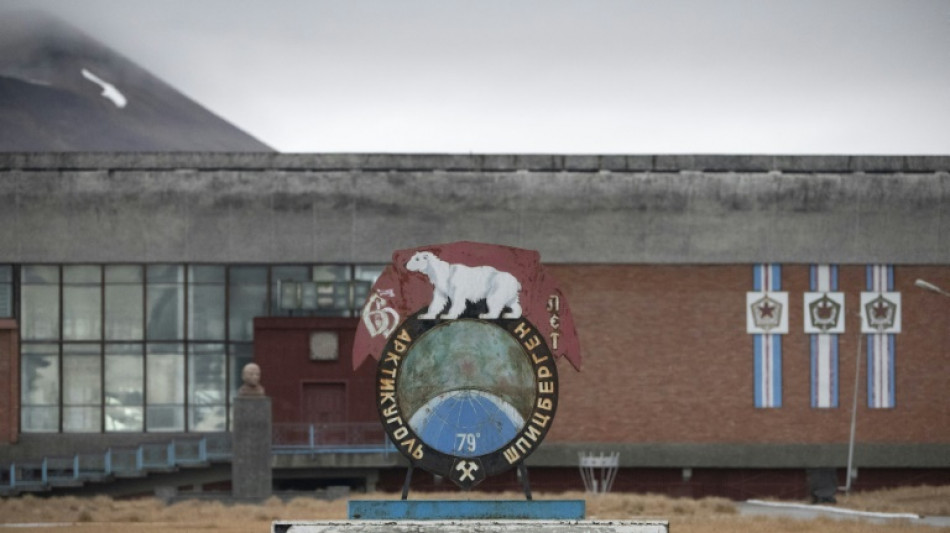
-
 Sarah McBride to be first transgender person in US Congress
Sarah McBride to be first transgender person in US Congress
-
Taiwan students design drones for mock battle, as China threat looms
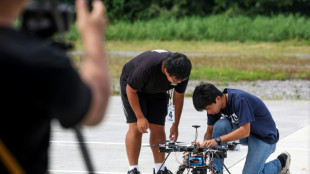
-
 Florida ballot initiative to extend abortion rights fails: US media
Florida ballot initiative to extend abortion rights fails: US media
-
Japan's Tenga wants to make sex toys more mainstream

-
 Asian markets rise with dollar, bitcoin as ealy US results roll in
Asian markets rise with dollar, bitcoin as ealy US results roll in
-
Cuba on alert as Hurricane Rafael approaches

-
 Snow seen on Mount Fuji after record time without
Snow seen on Mount Fuji after record time without
-
Spain unveils $11 bn aid plan after catastrophic floods

-
 US writes off over $1 billion of Somalia debt
US writes off over $1 billion of Somalia debt
-
Stock markets climb, dollar dips as US votes

-
 Boeing union approves contract, ending over 7-week strike
Boeing union approves contract, ending over 7-week strike
-
Stock markets rise, dollar falls as US votes

-
 US September trade deficit widest in over two years
US September trade deficit widest in over two years
-
'Black day': French workers protest Michelin plans to close two plants

-
 Saudi Aramco's quarterly profit drops 15% on low oil prices
Saudi Aramco's quarterly profit drops 15% on low oil prices
-
Spain unveils aid plan a week after catastrophic floods

-
 Europe auto struggles lead to cuts at Michelin, Germany's Schaeffler
Europe auto struggles lead to cuts at Michelin, Germany's Schaeffler
-
Norway speeds ahead of EU in race for fossil-free roads

-
 Most Asian markets rise as US heads to polls in toss-up vote
Most Asian markets rise as US heads to polls in toss-up vote
-
Nintendo lowers sales forecast as first-half profits plunge

-
 Most Asian markets rise ahead of toss-up US election
Most Asian markets rise ahead of toss-up US election
-
Saudi Aramco says quarterly profit drops 15% on low oil prices

-
 Boeing union says approves contract, ending over 7-week strike
Boeing union says approves contract, ending over 7-week strike
-
New Hampshire hamlet tied in first US Election day votes

-
 China's premier 'fully confident' of hitting growth targets
China's premier 'fully confident' of hitting growth targets
-
Asian markets swing ahead of toss-up US election

-
 Turkey sacks 3 mayors on 'terror' charges, sparking fury in southeast
Turkey sacks 3 mayors on 'terror' charges, sparking fury in southeast
-
Prince William plays rugby on S.Africa climate prize visit

-
 Striking workers weigh latest Boeing contract offer
Striking workers weigh latest Boeing contract offer
-
Montreux Jazz Festival hails 'godfather' Quincy Jones

-
 Stock markets hesitant before knife-edge US election
Stock markets hesitant before knife-edge US election
-
'War ruined me': Lebanon's farmers mourn lost season

-
 Stock markets rise before knife-edge US election
Stock markets rise before knife-edge US election
-
Eight on trial over French teacher's 2020 beheading
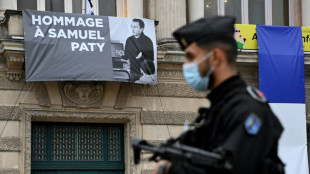
-
 Ryanair profit falls, growth hit by Boeing delays
Ryanair profit falls, growth hit by Boeing delays
-
Quincy Jones, entertainment titan and music mastermind

-
 Most markets rise ahead of US vote, China stimulus meeting
Most markets rise ahead of US vote, China stimulus meeting
-
Most Asian markets rise ahead of US vote, China stimulus meeting

-
 Climate finance billions at stake at COP29
Climate finance billions at stake at COP29
-
Nations gather for crunch climate talks in shadow of US vote

-
 Asian markets rise ahead of US election, Chinese stimulus meeting
Asian markets rise ahead of US election, Chinese stimulus meeting
-
No need to tell your husband: Harris banks on women's votes

-
 Striking Boeing workers set to vote on latest offer
Striking Boeing workers set to vote on latest offer
-
Pakistan shuts primary schools in Lahore over record pollution
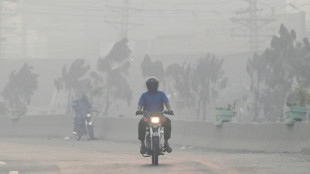
-
 Fading literature: Delhi's famed Urdu Bazaar on last legs
Fading literature: Delhi's famed Urdu Bazaar on last legs
-
Green shoots spring from ashes in Brazil's fire-resistant savanna
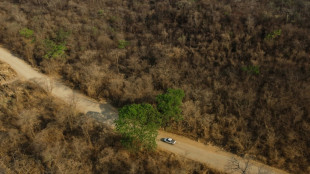
-
 Serbia to demolish 'German' bridge amid outcry
Serbia to demolish 'German' bridge amid outcry
-
War decimates harvest in famine-threatened Sudan

-
 Nuts! NY authorities euthanize Instagram squirrel star
Nuts! NY authorities euthanize Instagram squirrel star
-
Nvidia to join Dow Jones Industrial Average, replacing Intel


Soviet-era outpost helps Russia retain a foot in Norwegian Arctic
With its bust of Lenin, cultural centre and KGB offices, the abandoned Soviet outpost of Pyramiden may seem like a time-warped Arctic oddity but is valued by Moscow as it vies for clout in the warming region.
Russia has made the development of the Arctic a strategic priority, pinning its hopes for supremacy in the region on a fleet of giant nuclear-powered icebreakers.
The tiny ex-mining settlement of Pyramiden, meanwhile, helps Moscow retain a footprint in Norway's Svalbard archipelago, high above the Arctic Circle.
Norway -- a NATO member -- was afforded sovereignty of Svalbard under the 1920 Treaty of Paris but all signatories, which included the Soviet Union, were given equal rights to explore and exploit its mineral resources.
Russia began coal mining in Barentsburg, another settlement in the archipelago, in 1931, and later in Pyramiden, where the Russian community grew to up to 1,200 between 1960 and 1980.
Being sent to Pyramiden was considered a plum job for a miner, a tour guide told AFP.
On the Western side of the Iron Curtain, it provided a window on Soviet power, culture and self-sufficiency, from pig breeding to its 300-seat cinema, swimming pool, gymnasium and hospital.
But as the Soviet Union fell apart, while mining continued in Barentsburg, it stopped in Pyramiden in 1998 as its performance dwindled, and the miners left.
- 'Interesting future?' -
At first sight, Pyramiden now looks like a ghost town.
No one lives there apart from a handful of Russians who run a hotel -- and the polar bears with whom visitors risk coming face-to-face.
But even though the mining community has long gone, nothing has been destroyed, an AFP photographer saw, and its vestiges offer a glimpse into the heyday of the Soviet era.
Buildings built to last are just weather-beaten from decades of harsh winters.
The rails of the funicular on which the trailers of coal were hauled down are still visible on the pyramid-shaped mountain, which gave the village its name.
Inside the buildings, it's as if time has stood still, with the occupants having left suddenly but expected back at any moment.
Phials of ore are lined up in display cabinets in administrative offices, where calendars still hang on the walls, while the KGB premises have reinforced doors and miners' files spread out on the tables.
Classrooms are adorned with children's drawings and the teacher's cup is still there.
But Yury Ugryumov, of the Arctic and Antarctic Research Institute based in Saint Petersburg, said Pyramiden was not just a place of historical memory.
"This village is not abandoned, it has been temporarily put on hold," he told AFP.
Russia is currently developing tourism and research in Pyramiden, drawing glaciologists, hydrologists and marine experts there for scientific work.
"There's hopes for an interesting future here," said Ugryumov, who heads the Russian Arctic expedition to the archipelago.
A.Samuel--CPN

